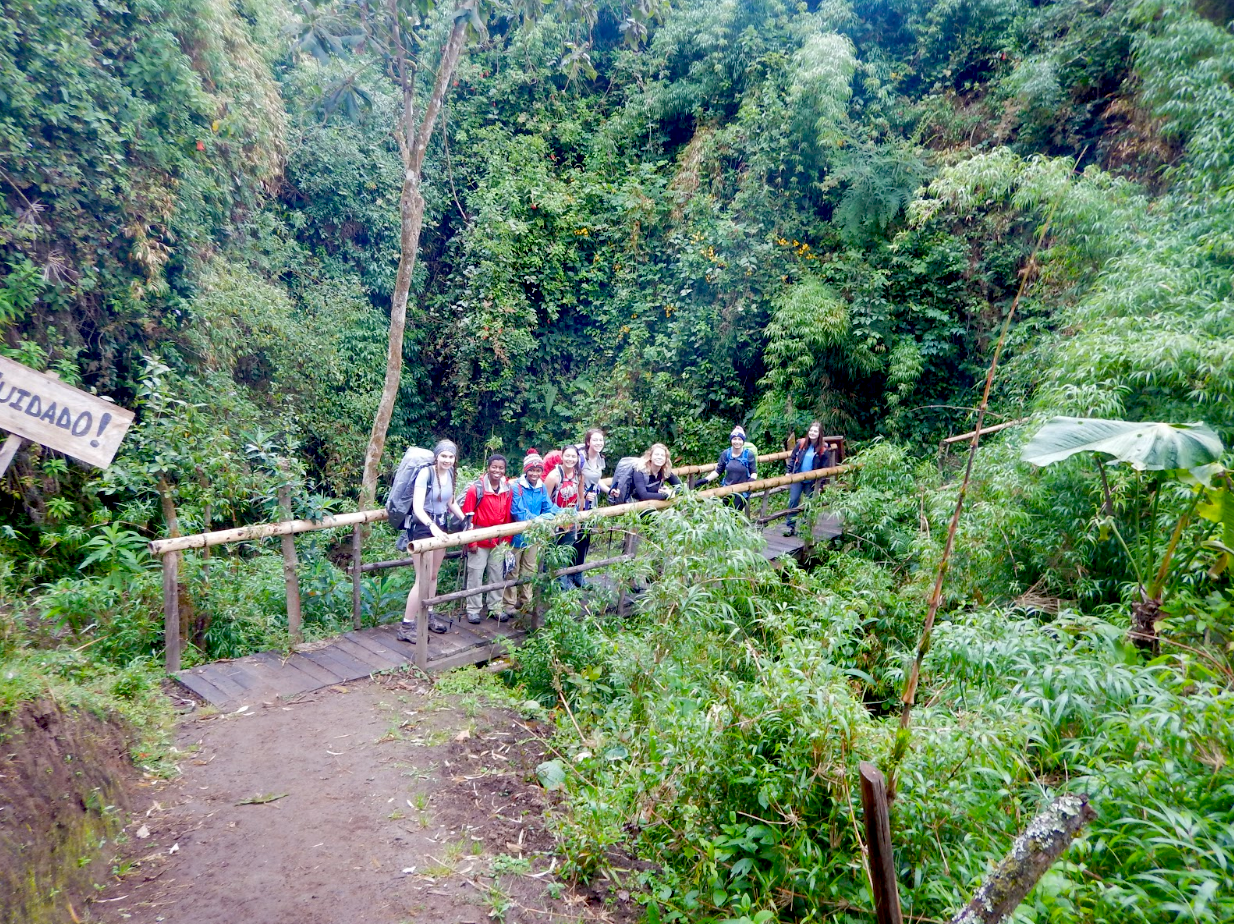Backpacks on their shoulders and water bottles in their hands, a line of girls stood at the crest of the grassy slope of a mountain in the Northern Andes, looking out over the view of Ecuador below. This past summer, a group of students had the experience of a lifetime in Latin America.
Eight rising junior girls, computer science and math teacher Dr. Robert Cohen, and World Challenge representative Leah Rapaport embarked on a 28 day journey throughout July to Ecuador and the Galapagos. Over the course of their stay, the girls hiked through the Northern Andes, painted houses in San Clemente, spent time wandering the capital Quito, snorkeled with sea turtles in the Galapagos, and made chocolate at a fruit farm, among many other activities.
The journey to Ecuador began in October of 2015, when the eight girls spent a weekend on World Challenge property in the Berkshires with Cohen and Rapaport, getting their first taste of what life during the expedition would be like. Over the next eight months leading up to the expedition, the girls met regularly to get to know each other and to learn more about the trip.
On June 28, the morning dawned and the eight challengers brought their 60 liter backpacks to Boston Logan airport, hugged their parents goodbye, and started their journey.
The girls began in Quito, where they spent the first day making most of the hotel and transportation reservations for the the rest of the trip. Although World Challenge makes all reservations that require a booking in advance as well as providing each team with a budget and itinerary, the company leaves some reservations up to the challengers.
“It was very nice to see how people took charge. The people that took charge in making reservations and chose where we went for dinner and navigated the public transportation system in Ecuador…really grew. [They] made a lot of decisions on their own that were pretty amazingly independant for high school students,” said Cohen.
After two nights in Quito, the team traveled by way of public bus to the small city of Otavalo to complete acclimation hikes in preparation for their four day Northern Andes hike. In two nights, they were ready for the trek.
The hike through the grasslands of the Northern Andes was spectacular. “I was really moved by the major trek. I thought it was beautiful and challenging. We were far away from everything. I don’t remember seeing other people who were not from our group while we were there,” said Cohen.
After spending three nights in tents, the girls went to San Clemente, where they spent five days painting houses during the community service segment of the trip. From there, the team traveled to the Galapagos for six days. All too soon, their time visiting giant tortoises at Charles Darwin Station and hiking volcanic fields came to an end, and they boarded their flight back to Quito. The challengers spent the last week of their trip in the Cloudforest and Mindo before heading for home.
The girls felt a distinct change in their confidence levels after the trip. “For myself, I could see that I could do a lot more on my own,” said Matilda Wrobleski ‘18. “I could see that for others there was just a change in confidence. They felt better about what they were doing and how they were doing everything.”
The change was also evident to Rapaport. “[I] saw [the] ladies learn how to take greater responsibility for [their] actions and decisions, saw you develop compassion and understanding for yourselves and others, and witnessed tremendous growth in terms of confidence. [They] each seemed to be a little bit more comfortable in your own skin by the end of the expedition,” said Rapaport.
Wrobleski enjoyed the trip and hopes others join the 2018 expedition. “Do it. Its definitely worth it. Don’t overthink it,” she said.
Cohen echoed her sentiment and encouraged others to join him and Rapaport in 2018. “I think every individual had an opportunity to do something new that they might not have done if they were [at home]. There were so many opportunities to get out of your comfort zone, whether that was physical comfort zone by climbing really challenging mountains or talking on the phone or communicating in spanish, or eating food that they might not otherwise eat…people [grow] more comfortable being uncomfortable.”
However, Cohen did have one especially valuable piece of advice for potential challengers; “Recognize that this is World Challenge and that this is challenging, but recognize that it is a great opportunity to grow and experience and know people in school that you wouldn’t otherwise get to know…and to really get a deep experience in another culture and another country.”

